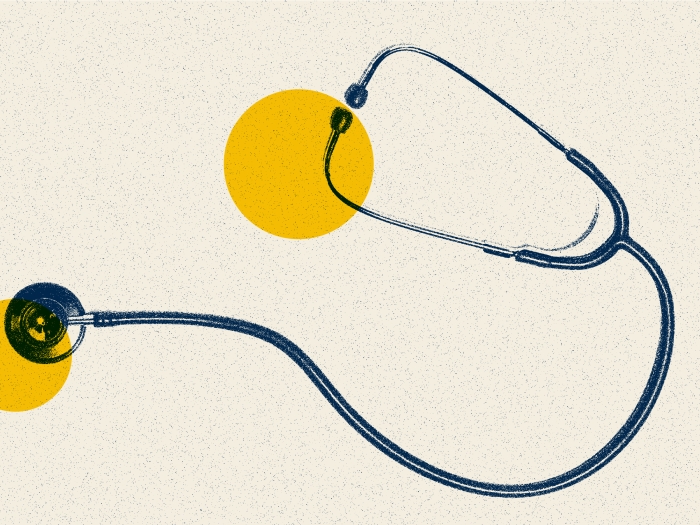The study builds an understanding around the experience of medical assistants in the primary care setting.
5:00 AM
Author |

Medical assistants play an increasingly important role in the primary care setting, especially as practices pivot towards team-based models of care.
As their scope of work transitions to accommodate changes in the clinic landscape, a finer understanding of how the most effective medical assistants manage their roles and employ efficient clinic care is critical, according to associate professor Katherine Gold, M.D., MSW, MS, and assistant professor Kathryn Harmes, M.D., members of the University of Michigan's Department of Family Medicine.
In a published paper, titled, "Medical assistants identify strategies and barriers to clinic efficiency," the researchers present the results of a cross-sectional study examining the medical assistant's experience and key factors that enhance or reduce efficiencies. The paper is available in the Journal of Family Practice.
Gold and Harmes first submitted a quantitative survey to all 86 Medical Assistants working in six clinics within the Department of Family Medicine at Michigan Medicine. They then asked medical assistants to identify individuals whom they perceived as most efficient. The authors interviewed 18 individuals deemed highly-efficient medical assistants.
The surveys and interviews evaluated trends in how medical assistants identified personal strategies for efficiency; dealt with barriers to efficient care; how they navigated medical assistant-physician relationships; and perceived job satisfaction.
Most high-performing medical assistants interviewed as part of the study considered their role as essential to clinic functioning and viewed their jobs as a personal calling.
Surveyed medical assistants identified work values that increased efficiency including:
-
Good communication
-
Strong teamwork among clinic staff
-
Multitasking
-
Limiting patient conversations
-
Completing tasks in a consistent way to improve accuracy
-
Preclinic huddles
-
Schedule reviews before patient arrival
-
Completing tasks before patient arrival
-
Sharing the workload
Surveyed medical assistants found the following to be barriers to clinic efficiency including:
-
Physicians agreeing to see very late patients
-
Physicians not completing paperwork or signing visit orders
-
Clinic decision-making without MA input
-
Indirect communication
-
Physicians who talk down to or bark orders at medical assistants
Despite identified barriers, the authors found that most (62%) of medical assistants 'strongly agreed' or 'agreed' that they felt their work was valued by doctors.
"Proper training of managers to provide … support and ensure equitable workloads (for medical assistants) may be one strategy to ensure that staff members feel the workplace is fair and collegial," Gold and Harmes write.
"Many (surveyed medical assistants) described their working relationships with physicians as critical to their satisfaction at work and indicated that strong partnerships motivated them to do their best to make the physician's day easier," they added.
At the same time, the authors note that most medical assistants they surveyed reported that their jobs were "stressful" and believed that this stress went unrecognized by co-workers. The researchers argue that these perceptions made the identification of medical assistants' efficiency strategies critical to supporting them in their roles that specifically promote smooth clinical operations.
"Staff job satisfaction is linked to improved quality of care, so treating staff well contributes to high-value care for patients," they added. "Disseminating practices that staff members themselves have identified as effective, and being attentive to how staff members are treated, may increase individual efficiency while improving staff retention and satisfaction."
Paper cited: "Medical assistants identify strategies and barriers to clinic efficiency," The Journal of Family Practice. DOI: 10.12788/jfp.0364
This story originally appeared on the Family Medicine website of U-M.

Explore a variety of healthcare news & stories by visiting the Health Lab home page for more articles.

Department of Communication at Michigan Medicine
Want top health & research news weekly? Sign up for Health Lab’s newsletters today!





